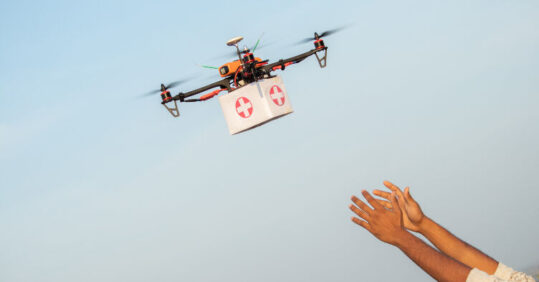Government pledges £5m for AI and drones to prevent drug overdoses

The government has announced a £5m fund to tackle fatal drug overdoses in the UK through the use of artificial intelligence (AI) and drone technology.
The funding will be used to support 12 projects as part of the government’s ‘vaccine taskforce style approach’ to some of the biggest health challenges in the UK.
The projects include proposals to use AI to detect overdoses and alert healthcare professionals, as well as using drones to dispense antidotes.
This comes as part of the ‘Reducing Drug Deaths Innovation Challenge’ which aims to reduce drug related deaths through the use of promising technologies to improve detection, response and intervention.
Related Article: Drug and alcohol abuse investment funds nurse recruitment
The UK’s current aim, published in the UK’s Drug Strategy in December 2021, is to prevent 1,000 drug related deaths in England by 2025.
According to the Department of Health and Social Care (DHSC), this will support the government’s ‘Addiction Mission’ which seeks to accelerate the development of potentially life-saving technologies.
Minister for health Will Quince said that drug use in the UK has ‘a devastating impact on people’s health, their families, and their livelihoods’, noting that more than 4,000 people die each year from an avoidable drug overdose in the UK.
Mr Quince added: ‘We want to stop people taking these substances and support them to recover from their addictions, while preventing those most at risk from dying from overdoses.
‘This fund forms part of our healthcare mission programme as we take a vaccine taskforce style approach to some of the biggest challenges facing our society today, backed by over £200 million.’
Of the projects selected, 11 have been awarded up £100,000 each to launch a four-month feasibility study. While one project will secure £500,000 for a year-long demonstration study to collect real-world evidence with residents within homeless accommodation.
Related Article: Overdose risk higher when opioid agonists prescribed with other medicines
The challenge is also being delivered in partnership with the Scottish Government as part of their National Mission on Drugs.
Professor Dame Anna Dominiczak, chief scientific advisor for health at the Scottish Government, said it was ‘truly inspiring’ to see the innovative solutions being supported and that tackling drug related deaths was ‘a huge priority’.
Some of the successful projects selected by the challenge include ‘In Time Naloxone’, a project co-produced by Midlands Partnership University NHS Foundation Trust, University of Southampton and Wessex Academic Health Science Network and other partners.
The project aims to develop an emergency response to deliver naloxone, an opioid overdose antidote, via drones to prevent opioid overdoses becoming fatal.
Related Article: Government to use ‘Vaccine Taskforce’ model for public health research
Other projects aim to make use of AI tools to enable early alert and response systems for potential overdoses.
Through wearable devices such as smart watches or breathing monitors, these technologies aim to detect overdoes and alert healthcare professionals, family, or members of the community to the need to intervene.

See how our symptom tool can help you make better sense of patient presentations
Click here to search a symptom

